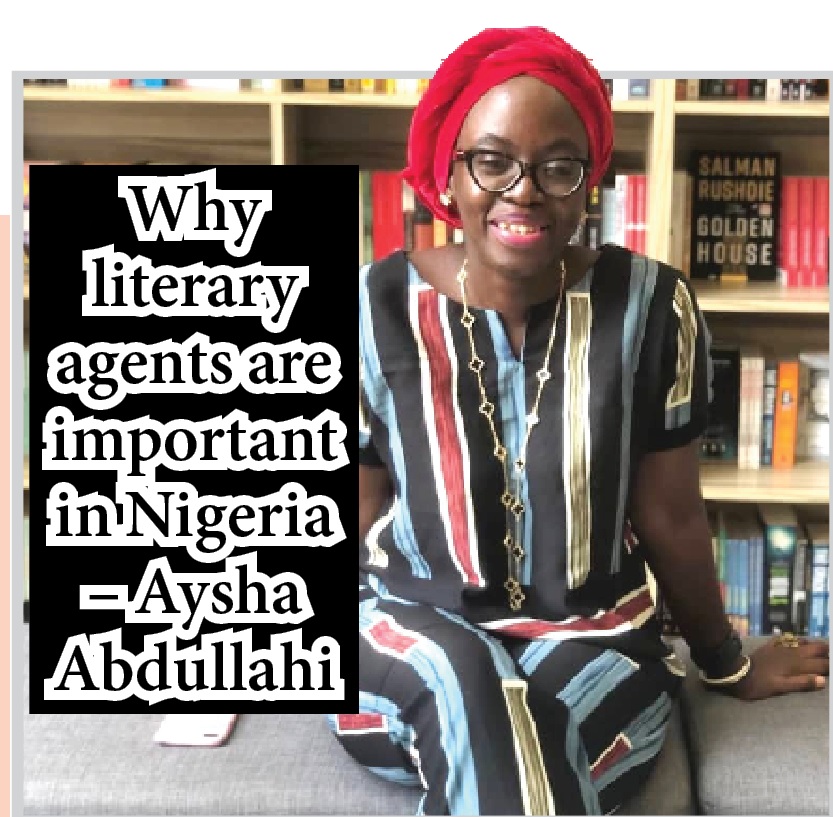Why literary agents are important in Nigeria – Aysha Abdullahi
Aysha Abdullahi is a co-owner of Page and Palette, a literary agency that distributes, promotes, and engages mostly African authors. Here, she talks about the motivating factor for the agency, how it works, its struggles and more. Excerpts: Bookshelf: Why did you decide to establish a literary agency? Aysha Abdullahi: I have always been a […]

Aysha Abdullahi is a co-owner of Page and Palette
Aysha Abdullahi is a co-owner of Page and Palette, a literary agency that distributes, promotes, and engages mostly African authors. Here, she talks about the motivating factor for the agency, how it works, its struggles and more. Excerpts:
Bookshelf: Why did you decide to establish a literary agency?
Aysha Abdullahi: I have always been a reader. A couple of years ago, a friend of mine was getting published and we were helping him review his contract. I realised from the contract that most publishers in Nigeria don’t expect to sell more than five thousand copies of an author’s books. I thought to myself that five thousand books isn’t profitable. Maybe for the publisher, but not the author, being that it’s his or her intellectual property. You have put your blood and sweat into it. It stifles the creative industry. More and more people become creative, but are discouraged because they know they aren’t going to make money out of it. If they do, it’s usually under stringent conditions or they would have to self-publish. Unfortunately, even if you self-publish, you may not have the required distribution network. That is how we decided that we were going to come in as a bridge between authors and publishers to help promote these books to a wider audience and distribute it. Now we have a pan African distribution network that ensures books are distributed across the continent. Recognition always opens international doors, because once people are talking about your book, you are able to attract international publishers who would be interested in your book and take you seriously because you already have traction.
Bookshelf: How does the literary agency work?
Abdullahi: We work in several ways. First, we work with the publishers because we already have a relationship with them and distribute for them. Also, writers approach us, we review their manuscripts and give an honest report. If your manuscript is good enough to get published, we send it to several publishers and help in negotiating a contract. That is for traditional publishing. After we do that, your publisher would print, and then we go about the business of promoting your book to make sure it gets sales. That is between we and your publisher, who retains us as your promoter. We then get you on a schedule of tours, events, social media management and other engagements that will bring traction to your book in every way possible. We also make sure your books are visible in all the distribution links we have. We take a percentage off what we distribute. So, the more we promote you, the more people keep talking about your book and we are able to sell.
Bookshelf: Do you collect any money from your authors?
Abdullahi: No, we don’t. But you pay a consultation fee after we have reviewed your book.
Bookshelf: How many authors are you working with at the moment?
Abdullahi: We have about a dozen.
Bookshelf: Do you work with those who are self-published?
Abdullahi: So, you have self-published your book. You can come to us for promotion.
Bookshelf: Do you work with international publishers?
Abdullahi: For now, our focus is pan African. We want to focus on African publishers and authors. I feel the market has a huge potential. We have the capacity to develope our own market without international publishers who are already established. Eventually, we will have alliances with them. We have a couple of agreements with some African publishers and authors. This year, we have about five events in different African countries, so we are able to expand our distribution links.
Our short-term plan in the next twenty-four months, is to have, at least sixteen countries where we have proper distribution links in Africa.
Bookshelf: What is your long-term plan for the agency?
Abdullahi: It’s to be the foremost literary agency in Africa, in the sense that we will not only be an agency, but also have a model of promotion and distribution for the creative arts. We have clients who are not writers but have creative content like documentaries and so on.
